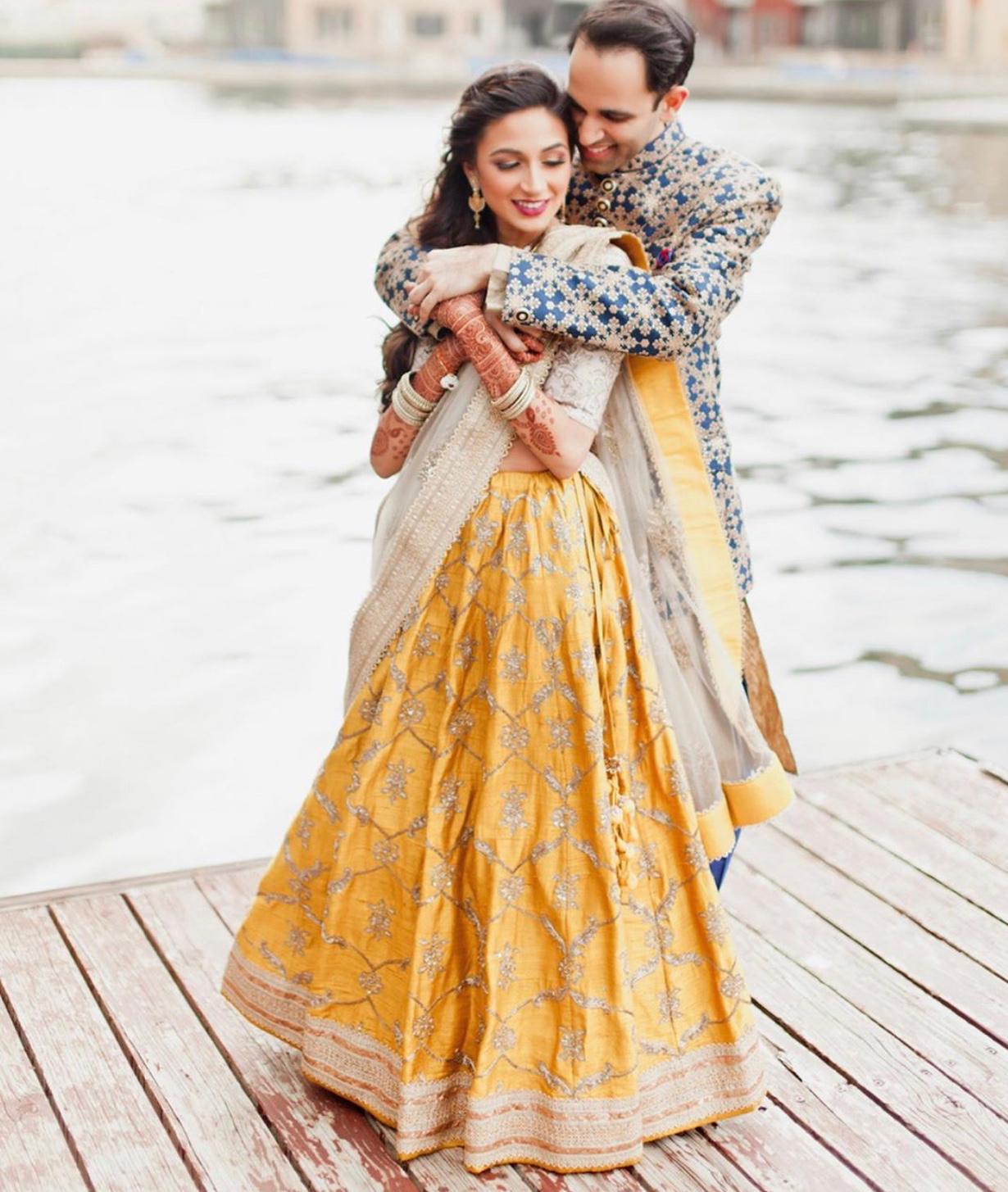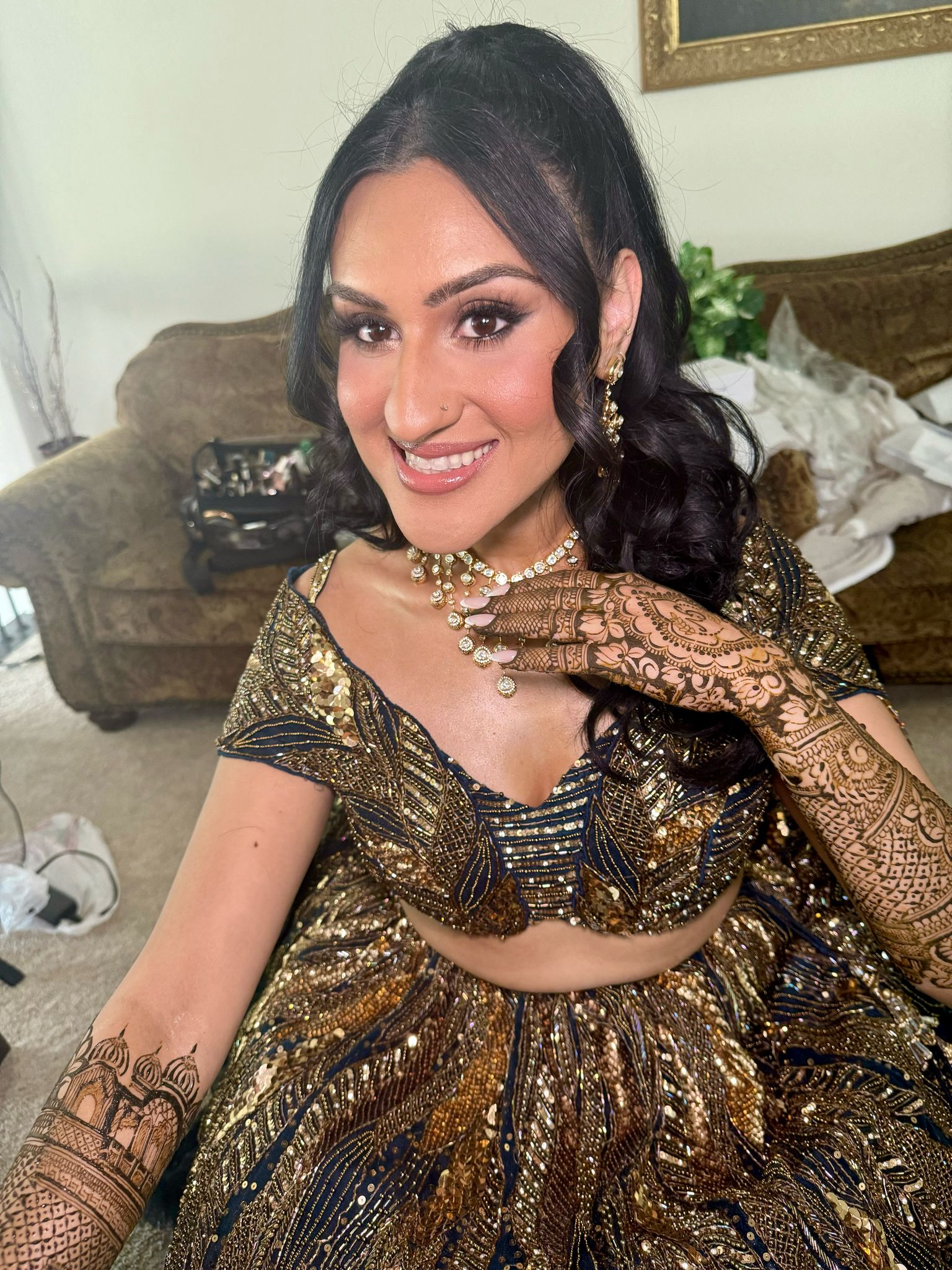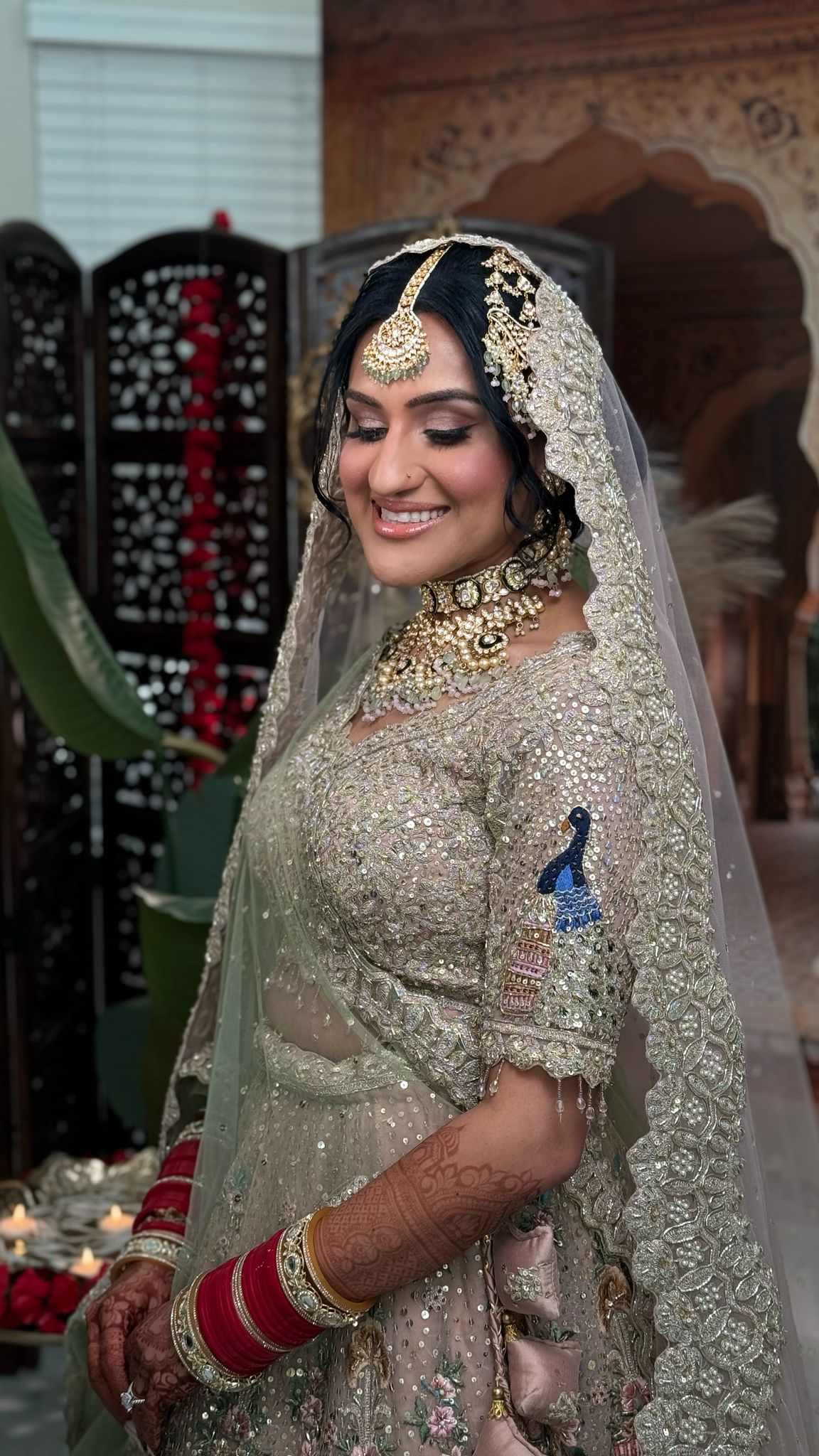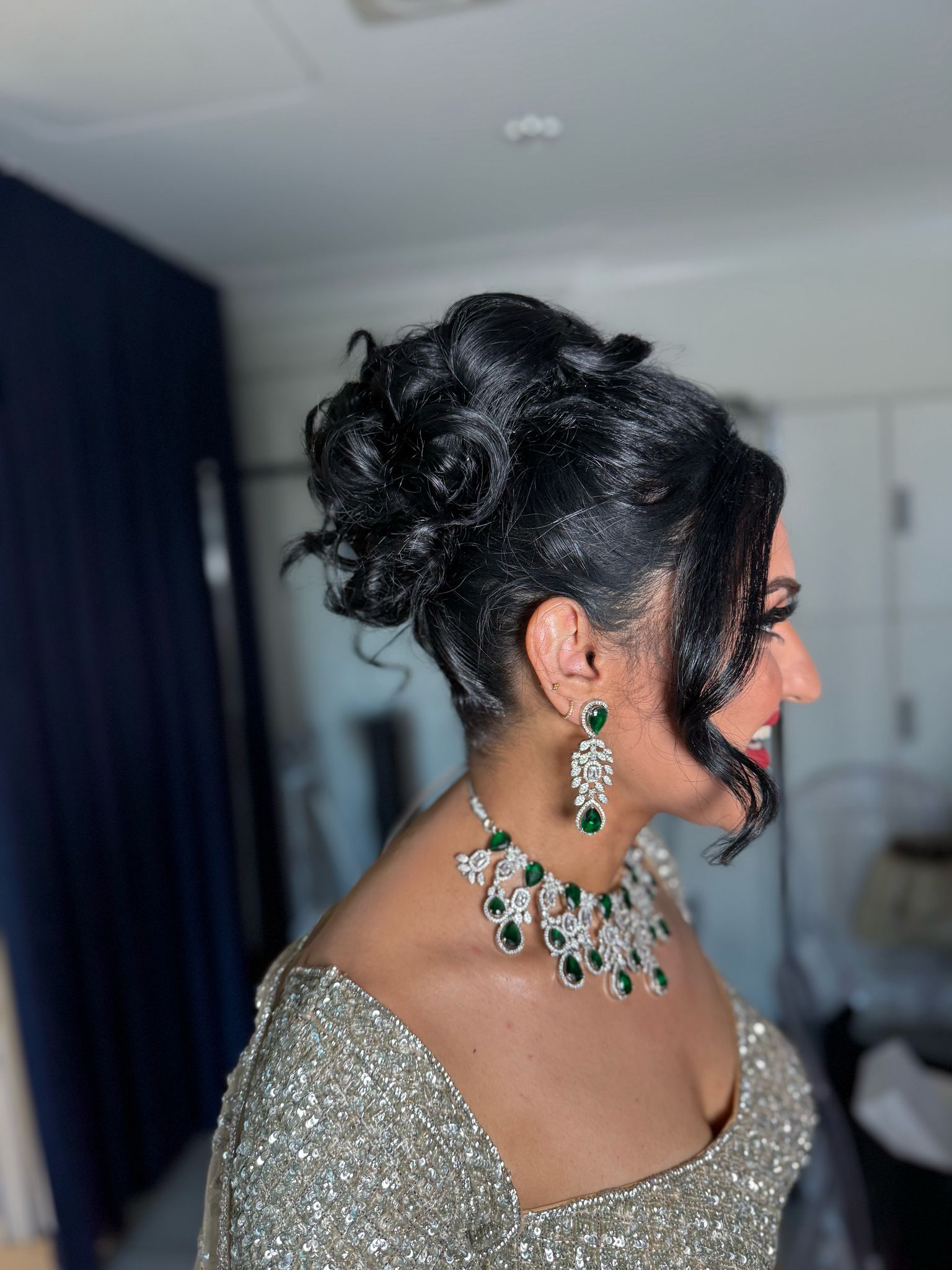Airbrush Makeup vs. Traditional Makeup: Which Is Best for Brides?
Bridal makeup plays a pivotal role in your wedding day, defining how you look and feel from the ceremony to the dance floor. It’s no wonder many brides are torn between airbrush makeup and traditional makeup methods. Each has its strengths, and the choice can seem overwhelming. But don’t worry; we’ve broken down everything you need to know to help you make an informed decision.
Airbrush Makeup vs. Traditional Makeup
The debate between airbrush makeup and traditional makeup isn’t just about aesthetics but also about technique, skin compatibility, and how each method holds up under wedding-day conditions. Understanding these two methods and their differences can empower you to pick the best fit for your big day.
How Airbrush Makeup Works
Airbrush makeup involves a specialized device that sprays a fine mist of liquid foundation onto the skin. The product is typically water- or silicone-based, designed to provide a smooth, even, and long-lasting finish. The airbrush gun evenly distributes the foundation, creating a lightweight yet full-coverage effect that looks flawless both in person and in photos.
The beauty of airbrush makeup lies in the technique. By using compressed air, the foundation is atomized into tiny particles that rest gently on the skin. This allows for an even application, perfect for brides who want a natural but perfected complexion.
How Traditional Makeup Works
Traditional makeup refers to the classic method of applying foundation using brushes, sponges, or beauty blenders. Makeup artists use liquid, cream, or powder products to build coverage, blending the makeup seamlessly into the skin. The traditional method offers greater flexibility for customization, making it easier to address specific skin concerns like redness, blemishes, or uneven texture.
With traditional makeup, the artist has more control over the blending and layering process. This adaptability is especially useful for brides who want a specific makeup look or who have unique skin challenges that need extra care.
Key Differences in Application
The biggest difference between airbrush makeup and traditional makeup comes down to the application process. To illustrate this, think of the difference between spray-painting a car versus hand-painting it. When a car is airbrushed, it gets an even, smooth coat of paint that seamlessly covers the entire surface. In contrast, hand-painting a car allows for more precision but requires significant skill to avoid streaks or uneven coverage.
Similarly, airbrush makeup uses a machine, almost like a “mini paint spray gun,” to apply foundation in a fine mist. It’s all about precision and efficiency, giving your skin a flawless, photo-ready finish that’s hard to achieve otherwise. On the other hand, traditional makeup is like hand-painting: using brushes or sponges to blend foundation into the skin for a more customized and controlled result.
The analogy of a machine gun spraying foundation versus painting with a beauty blender or makeup brush simplifies the concept. While airbrush makeup excels at delivering a seamless, even layer, traditional makeup allows for more personalized blending and targeted coverage.
Airbrush Makeup: The Pros
- Lightweight and Comfortable: Airbrush makeup feels weightless, which is ideal for brides who don’t want heavy makeup.
- Flawless Finish: The fine mist creates a smooth, poreless look that photographs beautifully, making it perfect for high-definition wedding photos.
- Long-Lasting: Known for its durability, airbrush makeup can withstand sweat, tears, and the hustle and bustle of a long wedding day.
- Quick Application: The method is efficient, covering the skin evenly in a short time, which is great for brides with a tight schedule.
Airbrush Makeup: The Cons
- Not Suitable for All Skin Types: Dry or flaky skin can be accentuated by airbrush makeup. It may highlight texture instead of hiding it.
- Limited Flexibility: Once applied, airbrush makeup is difficult to touch up or modify without redoing the entire area.
- Product Limitations: Airbrush foundations often come in fewer shades, making it challenging to match every skin tone precisely.
Traditional Makeup: The Pros
- Versatile and Customizable: Traditional makeup allows for greater control over coverage and texture, making it suitable for all skin types and conditions.
- Easy to Blend: Makeup artists can build and blend coverage precisely, ensuring a natural and harmonious look.
- Wide Product Variety: There is an endless array of foundations, concealers, and powders available, making it easier to find a perfect match for every skin tone and type.
- Adaptable to All Skin Concerns: Traditional makeup can be tailored to address issues like acne, rosacea, or hyperpigmentation.
Traditional Makeup: The Cons
- May Require More Touch-Ups: Traditional makeup may not have the same staying power as airbrush makeup, requiring regular touch-ups throughout the day.
- Heavier Feel: Some brides may feel that traditional makeup, especially full-coverage products, can feel heavier or cakier.
- Potential for Streaks: Improper blending or heavy-handed application can result in a less even finish compared to airbrushing.
Durability: Which Makeup Lasts Longer?
Airbrush makeup often wins the durability battle. Designed to withstand sweat, humidity, and tears, it provides all-day coverage without frequent touch-ups. This is especially important for brides who are worried about their makeup melting in hot, outdoor ceremonies or fading after hours of dancing.
Traditional makeup can be long-lasting as well, but it often requires setting powders and sprays for maximum longevity. The durability of traditional makeup largely depends on the products used and the expertise of the artist.
How Each Makeup Type Responds to Different Weather
The weather on your wedding day can significantly affect how your makeup performs. Airbrush makeup typically fares well in hot, humid conditions, staying put even when things get a bit sweaty. However, traditional makeup may be a better choice for colder climates, as it can be layered with moisturizing products to prevent dryness and cracking.
Which Makeup Photographs Better?
One of the biggest concerns for brides is how their makeup will look in photos. Both airbrush and traditional makeup has a clear advantage here, as it provides a high-definition finish that photographs beautifully. The even application minimizes the risk of flashback and looks flawless from every angle. Traditional makeup can also look great in photos, especially when blended well and paired with the right setting techniques.
Personalization and Customization
Personalization plays a critical role in your makeup choice. Airbrush makeup can deliver a stunning, polished finish, but it heavily relies on the skill of the makeup artist. A talented artist can adjust airbrush coverage to enhance your features while maintaining a natural look. If you opt for airbrush, I recommend a silicone-based formula. In my experience, silicone-based airbrush makeup looks more radiant and skin-like compared to water-based formulas, which can appear cakey or dry.
Expert Tip: Silicone vs. Water-Based Airbrush Makeup
Silicone-based airbrush makeup is a game-changer for brides. It’s flexible, moves with your skin, and holds up beautifully under wedding-day conditions like tears, hugs, and dancing. Unlike water-based formulas, which may cake or highlight imperfections, silicone-based makeup creates a smooth, dewy effect that looks and feels natural. For a flawless bridal look, trust your artist to use the best formula for your skin type and wedding environment.
Conclusion
The ultimate choice between airbrush makeup and traditional makeup comes down to your skin type, wedding day environment, and, most importantly, the expertise of your makeup artist. Both methods can deliver a stunning bridal look, but the difference lies in the execution. Airbrush makeup, especially when done with a high-quality silicone-based product, is ideal for a lightweight, long-lasting, and photo-ready finish. Traditional makeup offers unmatched flexibility and personalization, perfect for brides with specific skin concerns.
Remember, it’s not just about the products but how they’re applied. A skilled makeup artist can make either method look phenomenal, ensuring you feel confident and radiant on your special day.
If you’d like to learn more about airbrush makeup, visit www.jtorrymakeupacademy.com. If you’re a bride looking for exceptional bridal beauty services, contact JTorry at www.jtorryart.com to see which option is best for you!








